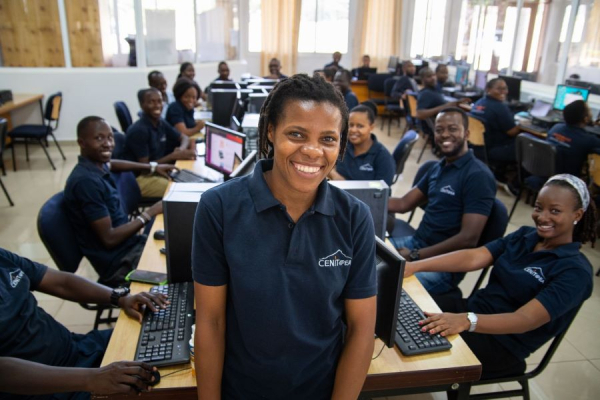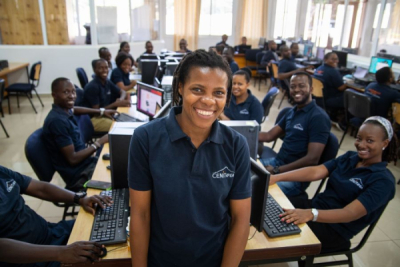With its young population, Africa could emerge as a major player in the global workforce over the next 10 to 15 years. However, to unlock this potential, massive investments in education and training are essential to equip the continent’s youth for the challenges of tomorrow.
More than 4,000 young people across the seven member states of the East African Community (EAC) have acquired digital skills through the “Innovative Skills in East Africa” (dSkills-EA) project. The participating countries include Burundi, the Democratic Republic of Congo, Kenya, Rwanda, South Sudan, Tanzania, and Uganda. The program, supported by German development cooperation through GIZ and implemented by the Inter-University Council for East Africa (IUCEA), aims to enhance youth employability and foster digital innovation within the region.
Launched in 2021, dSkills-EA is scheduled to conclude on March 31, 2025, after a four-year implementation period. In a statement released on Wednesday, March 26, the EAC lauded the project's impact and announced new initiatives to build upon this momentum. “dSkills-EA demonstrates the strength of collaboration between governments, academia, and industry. By equipping thousands of young people with future-proof skills, we have laid the groundwork for a thriving digital ecosystem in East Africa. The EAC AI Regional Alliance will build on this success, expanding AI infrastructure and regional capabilities to secure East Africa’s place in the digital future,” stated David Roos, Director of the dSkills-EA project.
Addressing the Digital Skills Gap
The EAC economy faces challenges related to low productivity and competitiveness, which contribute to high unemployment rates, particularly among young people. According to GIZ, socio-economic development is heavily reliant on innovation and the integration of information and communication technologies (ICT). However, universities still struggle to adequately meet the demands of the private sector and young entrepreneurs.
To address these shortcomings, dSkills-EA introduced short-term training programs tailored to industry needs, provided support to young entrepreneurs in developing digital solutions, and enhanced the master's curriculum in embedded and mobile systems at the Centre of Excellence for ICT in East Africa (CENIT-EA), hosted at the Nelson Mandela African Institution of Science and Technology (NM-AIST). The initiative brought together over 300 private partners and 100 universities, establishing a solid foundation for digital transformation in East Africa.
A Critical Issue for Africa's Future
According to a study by the International Finance Corporation (IFC), 230 million jobs in Africa will require digital skills by the year 2030. Yet in 2022, the continent registered a digital skills gap index between 1.8 and 5, significantly below the global average of 6, according to the World Bank. The institution also noted that 12 of the 20 countries with the lowest levels of digital skills are located in Africa, hindering the growth of a competitive digital economy.
Initiatives like dSkills-EA are crucial for bridging this gap and preparing Africa’s youth for the jobs of the future. By offering targeted training aligned with market needs, dSkills-EA enables young people to quickly enter the workforce by providing them with the technical and practical skills necessary for fast-growing sectors.
By Samira Njoya,
Editing by Sèna D. B. de Sodji



















